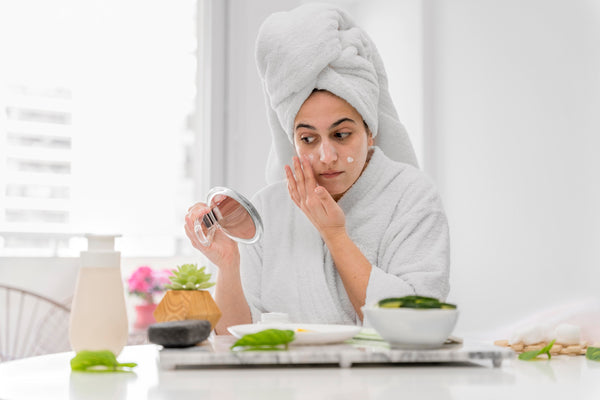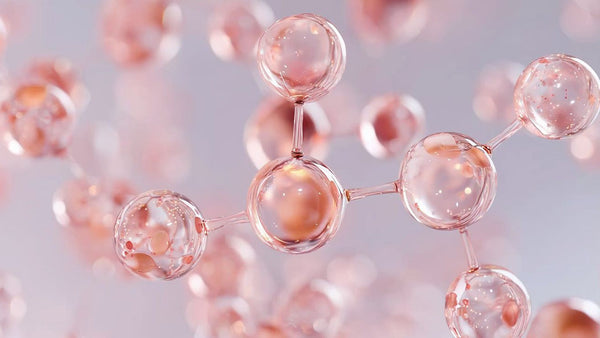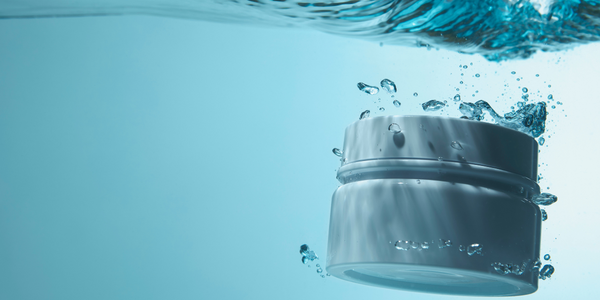The beauty of varying seasons is almost always perceived by us from the outside. We whip out different outfits to suit the weather, the feeling of a new reason for celebration is in the air, and the seasonal fruits have marked their arrival — we ensure we’re equipped to brace the seasonal change in our way. But apart from these external changes, even our body goes through a lot of shifts in its functioning. Our gut health, mental health, and even our hair, skin, and nail health are affected in many ways by every shift in the temperature.
Seasonal changes in hair, skin, and nails are common, but we often ignore them. Even though we have minimal control over these weather fluctuations, we can, however, adapt by changing our lifestyle and eating habits to ensure optimal health. In this guide, we’ll start by taking a look at the changes that our skin, hair, and nails go through before we dive into a routine for each season. Read on.
Impact of Seasons on Hair, Skin & Nails :
The major factor that affects our hair, skin, and nails is the level of humidity in the air. Along with that, the microparticles in the air that include pollen or allergens also affect the trio in some way.
Another factor to keep in mind is keratinocytes. These cells are the common component that binds hair, skin, and nail health together.
Keratinocytes are the most prominent cell type of the epidermis and perform a variety of important tasks in skin restoration. They carry out the re-epithelialization process, in which keratinocytes shift, multiply, and differentiate to rebuild the epidermal barrier.
Keratinocytes are mostly made up of keratin and are created in the lower layers of the epidermis, which is in charge of skin cell regeneration as well as keratin formation. The dead keratin cells are forced to the skin's surface by the new keratin cells that are created beneath. Situated in the outer layer of our skin, the dead keratin cells serve as a waterproof barrier. However, if you have skin issues such as acne, dryness, itching, or oiliness, it could be an indication that the keratin production deeper in the skin is out of balance, which is a high possibility owing to the change in seasons.
When it comes to improving the health of your skin, hair, and nails, the most important thing to remember is that it is a process that does not happen overnight or even in a week—it takes time for healthy keratin cells to begin producing and migrating outward. There is no quick treatment; topical products can disguise issues, but the troubles may continue to persist. This is why it is extremely crucial to build a beauty regime catering to your body’s needs to care for your hair, skin, and nail health from the inside, and give it some TLC.
Summer’s plight
The harsh heat, pollution, and dryness may all wreak havoc, resulting in sensitive skin and a damaged barrier in summer. When there is a rise in temperature and heat, it results in the production of excess sebum (oil) by the sebaceous glands. Humidity makes oily skin oilier and dry skin more rough and flaky.
The sun’s UV rays are also stronger during this time of the year, damaging not only your skin barrier but your nails as well.
Aside from the sun's harmful UV rays damaging your nails, leaving them dry and brittle, humid weather can also lead to the growth of bacteria and fungus, and your nails are one of the many places where pathogens thrive and multiply.
High humidity has an impact on the texture and manageability of our hair. The bonds in our hair, known as hydrogen bonds, are the weak links that can be broken by water and then re-established when dried. Water in the atmosphere (also known as humidity) disrupts these bonds, causing them to reset, which is why you're likely to have kinks and frizz throughout the day in summer. In this season, we’re also more likely to be washing our hair more often to reduce the amount of buildup on our scalp that comes with the humid weather.
Summer also brings with it activities like swimming, which require us to pay extra attention to not just our skin and hair, but also our nails.
Summer Care Tips
1. Top coat to protect your nails
Don’t forget to prep your nails with a strengthening top coat along with a regular application of cuticle oil that will help prevent hangnails and keep the cuticles moisturized.
2. Use good sunscreen
With the sun shining brightly upon us during this season, adding suitable sunscreen lotion to your skincare regime is a must. SPF 30 and above is sufficient to protect you from the sun's rays. Other than SPF, you should look for a sunscreen that is broad spectrum. SPF only measures the UVB rays, so your skin can still suffer damage because of the UVA rays. Broad spectrum implies that you get full protection from both UVA and UVB rays.
3. Master antioxidant for an even tone
Most sunscreens only do the job of protecting your skin from harmful UV rays, not the sun tan. So, to ensure you have a bright complexion even in humid weather, you can choose to add glutathione supplements to your routine. Glutathione is our bodies' most abundant antioxidant. It boosts the functioning of other antioxidants such as vitamin C and vitamin E, as well as alpha lipoic acid. It fights external and internal free radicals caused by pollution, sunshine, and other environmental factors during summer and acts as a master antioxidant and detoxifier for the skin.
Glutathione supplements can go a long way in keeping skin healthy and youthful. They not only brighten the skin but are also known to decrease wrinkles and fine lines, and enhance skin elasticity.
Skin whitening lotions and creams can be harmful to both your skin and your health. The ingredients in these cosmetic solutions can produce uneven results and carry a serious danger of skin damage. Therefore, opting for carefully formulated glutathione supplements is always the better choice, as it is a naturally occurring substance that works from within to improve the texture and tone of your skin without exposing it to hazardous chemicals or other compounds.
4. Switch to a mild shampoo
To make sure your tresses and your scalp are in optimum condition and don’t dry out in the summer, you can transition to a milder shampoo that will clean your scalp without stripping it of its natural oils and moisture. Taking care of your scalp even after a hair wash is crucial, as it determines the health of your hair.
5. Biotin and folic acid for hair growth
The sun and heat both promote hair growth. Human hair does grow faster in the summer when compared to hair growth in the winter. To reap the benefits of this anagen phase of the hair growth cycle, you can opt for a supplement containing the best vitamins for hair growth to ensure healthy hair. Some ingredients to look for in these supplements are biotin, folic acid, zinc, and a few other essential hair and nail vitamins. Healthy hair supplements that have biotin as their main ingredient can be highly beneficial in nourishing your hair follicles, resulting in stronger hair, reduced hair fall, and a healthy scalp.
Monsoon troubles
After the sweltering summer heat, the monsoon brings with it a pleasant respite. The temperature has finally dropped, there is plenty of greenery around, and a pleasant wind meets you as you step outside, and how could we miss the unmatched earthy aroma of soil after the first rain? While there are many pleasures that this season brings, don't forget that it also has its fair share of skin troubles. As the weather becomes more unpredictable and humidity levels rise, your skin can struggle to adjust and preserve its radiance.
When it comes to haircare during the monsoon, pampering your hair is a must. This is the season when we experience more hair fall and brittle texture in our hair, not to mention that it stays damp for a long time after a hair wash, thanks to the humid weather. Furthermore, it also makes the hair dull and frizzy. During this particular season, the humidity in the air prevents your scalp and hair follicles from breathing, causing a blockage. Excess sebum causes this blockage to worsen because it attracts dirt particles. The accumulation of dirt and grime on the scalp then serves as a breeding ground for bacteria and fungi, exacerbating your dandruff problems. The acidity of rainwater can also be to blame for excessive hair loss in this season. These are just a few of the many reasons why you should follow a proper monsoon hair care regimen.
Let’s take a look at some effective ways to keep your hair, skin, and nails healthy in the monsoon season.
Monsoon Care Tips
1. Use a toner to maintain pH levels
During the monsoon, our skin produces more sebum. Because of this excess production, our pores become clogged, resulting in acne breakouts and pesky blackheads. Using a toner to keep your skin's pH balance can be extremely beneficial this time of year.
2. Cleanse and exfoliate
Apart from that, it is also important that you exfoliate at least once a week to avoid clogged pores and to help reveal fresh, even-toned skin. It is best to stick to a simple skincare routine that will cleanse your skin, remove excess oil, and keep your skin hydrated. Using too many products at once can also irritate the skin and cause more breakouts, something we don’t intend to face in this particularly unpredictable weather.
3. Sunscreen protection
Even though sun exposure is limited during this time of year, it is critical to apply sunscreen every time you go outside, regardless of humidity or oily skin. Applying sunscreen is critical for protecting yourself from UV damage and free radical activity. It is advisable to use a sheer or matte, lightweight sunscreen with at least SPF 30 and broad spectrum protection.
4. Stay hydrated
It is also very crucial to be mindful of your hydration levels during the monsoon, as it will help you maintain a natural glow on your face while flushing out toxins in the form of sweat.
5. Be careful while combing your hair
One of the most overlooked elements of hair care is the type of comb you use. When you use a fine-tooth comb or a hairbrush with many teeth or even try to brush wet hair, your hair is more likely to break and could lead to additional hair loss. This is why having a good comb or hair brush is essential. Detangle your hair with the appropriate tool after washing it. It's also a good idea not to share your comb with anyone during this time to avoid catching any fungal infections.
6. Take help from hair, nail, and skin supplements
To care for your hair and skin during the monsoon season, you can also turn your gaze towards the right skin and hair supplements to give your body the beneficial nutrients that will help restore your hair, skin, and even nail health. A supplement to do all the work of taking care of your hair, skin, and nails would also be a wonderful investment to make for your health. Look for a hair, skin, and nail supplement that contains the necessary ingredients like glutathione, biotin, and collagen to make sure they give holistic results. To unlock those lustrous locks in the monsoon that are not only thick but also nourished and shiny, you can check for hair supplements that contain enriching ingredients like keratin, virgin coconut oil, zinc, and iron.
Winter’s woes
Winter is everyone’s favorite. We get to wear cute sweaters, enjoy some tasty Christmas treats, and stay warm and comfy in bed while bingeing on our favorite show. This joy and happiness are usually overshadowed by a weaker immune system and health issues. Our skin, hair, and nails also suffer a considerable amount of damage because of cold temperatures and dehydration. Ready for some tips to make your winter season enjoyable?
Winter Care Tips
1. One best tip - drink more water!
This may sound obvious, yet we tend to drink less water in the cold. After all, who wants to drink water when the temperature is constantly low outside? If you tend to consume more coffee during the winter months, keep in mind that it can dehydrate your body and add to general dryness. To make up for it, make sure you drink as much water in the winter as you do in the summer to keep your hair, skin, and nails feeling supple and healthy.
2. Switch to a thicker moisturizer
To keep the skin moisturized throughout the winter months, it can be helpful to switch to thicker creams and oils. A secret to locking in moisture with your preferred skincare products is to apply them to your face and body right when you step out of the shower when your skin is a little damp.
3. Use less acidic cleansers
During winter, you may even need to switch up your cleanser if it leaves your skin feeling dry and tight after washing. You need a softer, more hydrating, and less acidic cleanser that will not dry out your skin and will also balance your skin's pH levels. A fun thing to do would be to determine the pH values of a substance by using pH strips. If your cleanser generates a lot of foam, the pH values are probably too high.
4. Use humidifiers to increase moisture in the air
Using a humidifier to add some moisture to the air can also help your skin retain the lost moisture. Another thing to keep in mind to avoid dry skin in winter is to avoid really hot showers. We understand how tempting it is to turn up the heat, immerse yourself in hot water, and indulge in what appears to be the ultimate form of self-care; however, it is doing the exact opposite for your skin. Hot water strips the natural oils from your skin, and also makes it more susceptible to being flaky, dry, and duller than ever.
5. Hydrate your skin with Hyaluronic acid
Using the best hyaluronic acid on the market can be a great addition to your skincare routine. Hyaluronic acid is a naturally occurring substance found in the body, including the skin, eyes, and joints. The fundamental purpose of hyaluronic acid is to keep various parts of the body hydrated. It allows the skin to expand and flex while also reducing wrinkles and creases. It has also been shown to help wounds heal faster and minimize scarring. Of course, the best hyaluronic acid is the one already present in the body, but since our skin tends to get drier in the colder months, a topical application or a supplement that delivers the best hyaluronic acid can be incorporated.
6. Marine collagen supplements
A marine collagen supplement with potent and organically sourced marine collagen peptides can be a smart investment for your skin to get a radiant and effortless glow from within. Apart from ensuring skin elasticity, collagen for hair works well on your nails as well, while giving you all of nature’s anti-aging benefits. A few of the best collagen supplements on the market come infused with the goodness of hyaluronic acid as well as other supporting ingredients like rosehip and hair and nail vitamins like vitamin C, vitamin E, etc. These ingredients are great for giving your skin and hair health that extra boost in the colder months when they need some extra love and care!
7. Use hair dryers with caution
A dry scalp caused by seasonal fluctuations is similar to dry skin and can cause itching, peeling, and discomfort. It may also cause the hair to appear and feel dry as a result of a loss of moisture. We must consider our scalp as an extension of our skincare regimen and ensure that it is nourished. It is critical to dry your hair properly. It’s best to dry your hair at room temperature. But owing to a hectic schedule, it may not always be possible. It is best to avoid using a blow dryer altogether because they cause the hair cuticles to become dry and brittle. However, if you absolutely must, you can use a dependable and high-quality hair dryer with a cooler temperature setting to dry your hair. Avoid using the dryer directly on the roots of your hair.
8. Have a nutritional diet
A balanced diet is one of the greatest methods to maintain your hair health. Seasonal fruits and vegetables that are constantly at our disposal should be consumed. Berries are also one of the healthiest fruits to consume since they are high in antioxidants, hair and nail vitamins, and minerals. Salads, milk, juices, and soups are some other foods that might help maintain your skin and hair.
9. Use cuticle oil
Lastly, to care for your nails, make sure your cuticles are moisturized with the help of cuticle oil. Dryness in winter can lead to your hands and nails looking dull and pale. You can also use a rich, buttery hand cream to keep your hands and nails looking their best in winter.
Wrapping Up
No matter what your age or gender, it's important to take care of your skin, hair, and nails. Maintaining healthy skin, hair, and nails all year requires time, effort, and a specific regimen tailored to your body's needs in each changing season. Cosmetic solutions, fancy products, and endorsements may come and go, but researching and buying the right, healthy supplements to nourish your body from the inside out will always be in style, no matter what the season is!
References:



























 DOWNLOAD NOW
DOWNLOAD NOW
